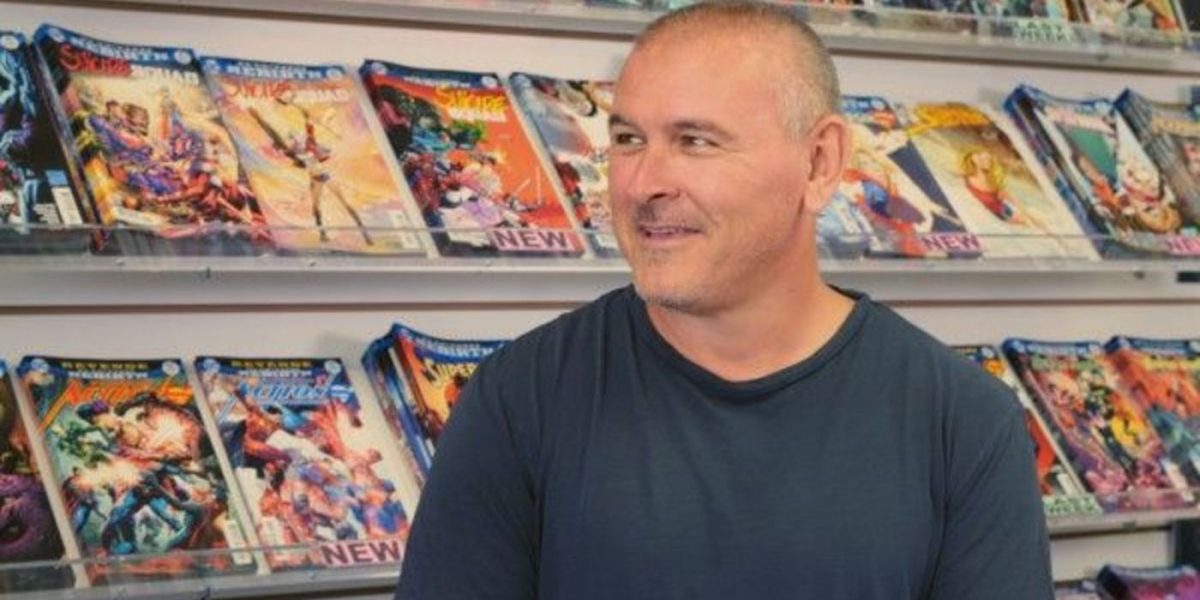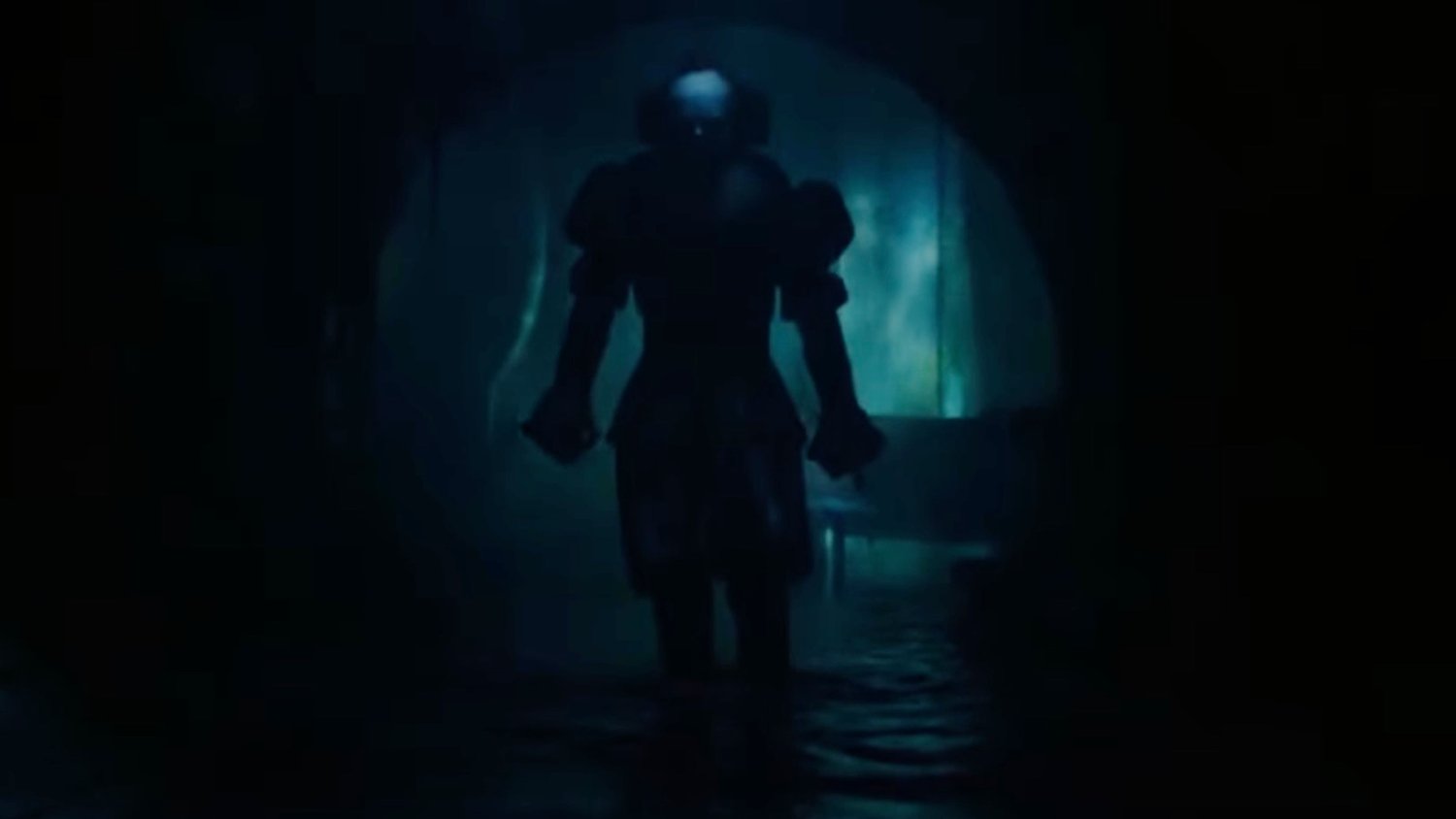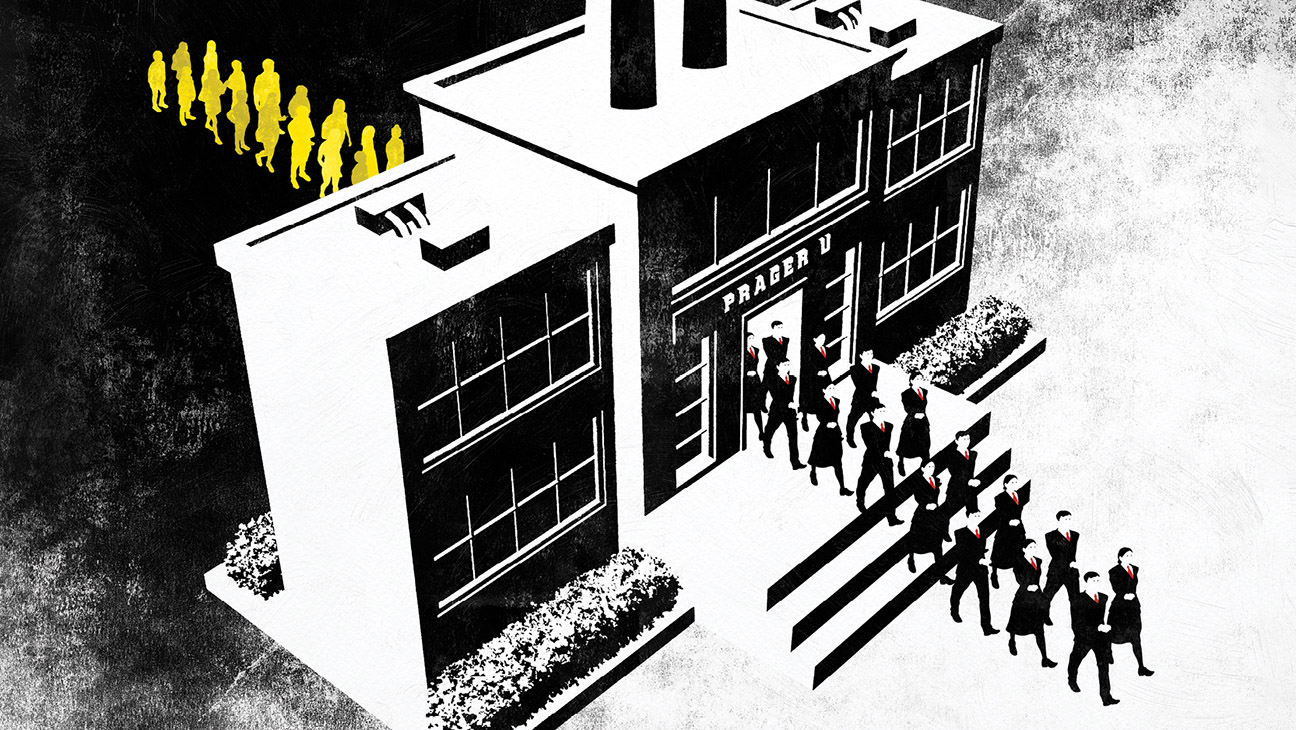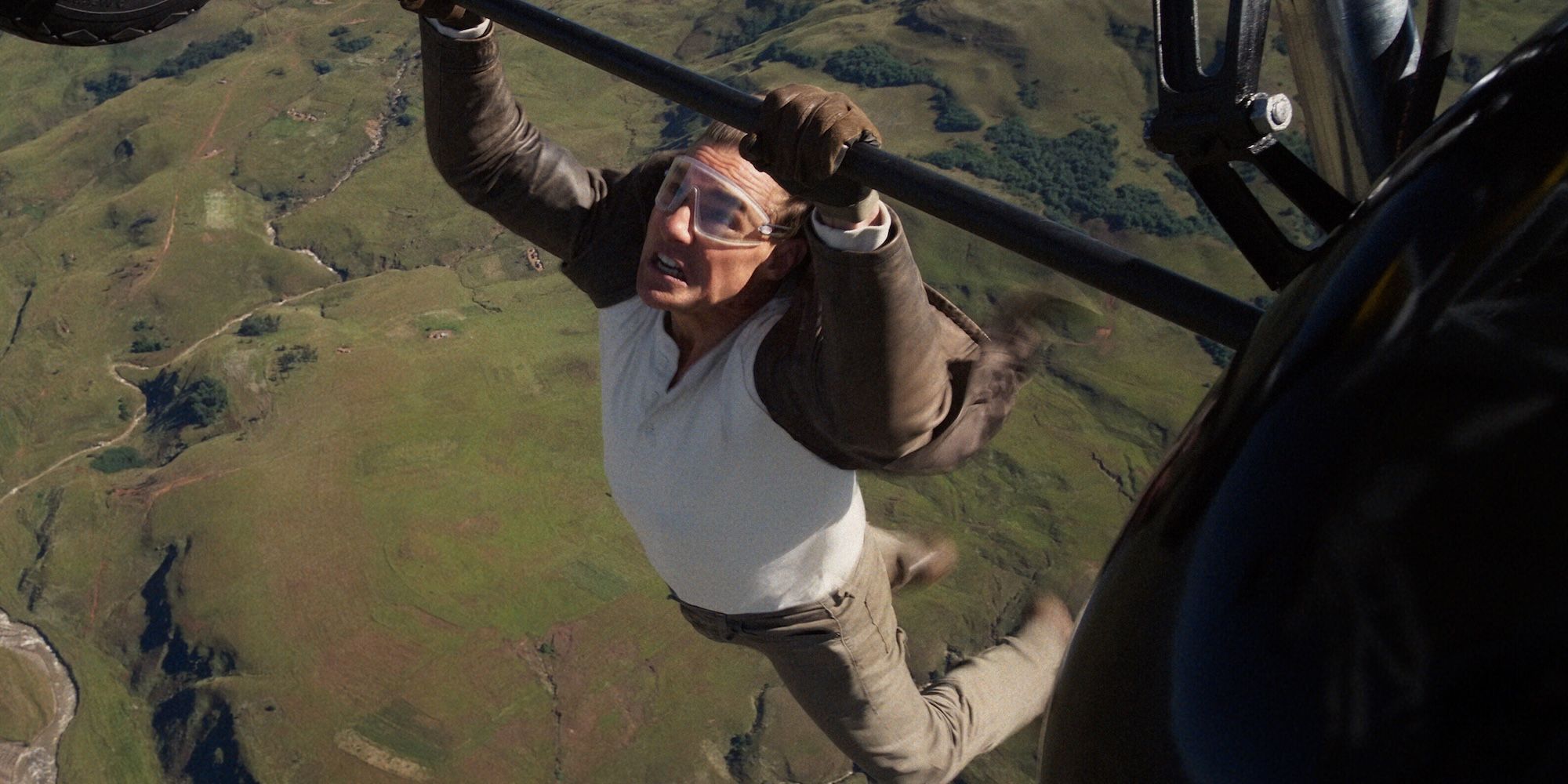
Tim Miller on Comic Book Movies, ‘Best Served Cold’ with Rebecca Ferguson
Oct 16, 2023
The Big Picture
Tim Miller believes there is still plenty of life left in the superhero genre and that there are many different types of stories to be told beyond men and women in tights. Miller mentions his favorite recent superhero movies, including “Winter Soldier” and “Thor: Ragnarok,” and highlights the variety and room for maneuver within the genre. He expresses his hope that Marvel and DC expand into other genres and continue pushing boundaries, citing the success of R-rated superhero movies like “Deadpool” and “Joker.”
On a recent episode of the Collider Dailies podcast, Perri Nemiroff and Steve Weintraub chatted with guest, Tim Miller, the director behind the first Deadpool movie and Terminator: Dark Fate. Miller is an avid comic book fan and a passionate filmmaker, as well as a producer and writer, which earned him an Academy Award nomination for a short titled Gopher Broke in 2005. But even before Ryan Reynolds and Deadpool, Miller co-founded Blur Studio, a production company that focuses primarily on CG visual effects and animation, and that has had their hands in some big titles, from Halo and Star Wars in the gaming community to Marvel projects, and more. Having donned many hats within the industry, Miller was the perfect first guest to our new podcast.
For his interview with Collider Dailies, the trio spent time discussing the current climate around the superhero genre and the potential for the future of studios like DC and Marvel. Spurred by the abrupt (but not so shocking) news that Marvel is scrapping their Disney+ series, Daredevil: Born Again, and starting from scratch, Miller shares his perspective on this general superhero fatigue and whether this genre has tapped its well dry. He offers insight on why they work, why they may not, and where the superhero blockbusters could go next.
For fans of Miller’s, they also discuss his other projects, the ones we know about and the ones he hasn’t gone public with yet. Miller is the creator and showrunner for Netflix’s sci-fi anthology series Love, Death + Robots, and now that the show has been renewed for a fourth season, he shares a good starting off point for new viewers and his hopes for young filmmakers who work on the series. They talk about Blur Studio and what projects are in development, how the industry has changed in the last few years, his feature adaptation of Joe Abercrombie’s Best Served Cold with Rebecca Ferguson (Dune), why he isn’t worried about AI, and what it was like stepping in for Eli Roth on the Borderlands film. For all of this and loads more, check out the Collider Dailies podcast above or you can read the full transcript below.
PERRI NEMIROFF: I have the honor of giving you the first question and it’s something I love asking pretty much any filmmaker in this industry. What is one of your favorite movies of 2023, and can you also name something about that movie that gives you hope for the future of this industry in filmmaking?
TIM MILLER: It has to be 2023?
STEVE WEINTRAUB: We should open it up a little more because Tim is what we call hard to please.
PERRI: A recent movie.
MILLER: I’ll say Dune because I think it embodied what the cinematic experience could be. I’ll be honest, I watched it on TV and in the theater four times. It’s just such a different experience to watch it in the theater, and it’s such a beautiful movie that you can only appreciate it to the fullest extent on a giant screen, so that’s been my favorite movie for a while now.
Image via Warner Bros.
It is a rock-solid choice right there.
STEVE: I think the audience needs to realize, and I said it already, but Tim would you say that most movies you have a tough time with?
MILLER: [Laughs] I would, but I feel the need to qualify because there are movies, and I’m not gonna name them because it’ll be shitty, where– I really love story and I love spectacle, but I love story more, so when I go to the movies, I expect that the story will be a fulfilling, well thought out version of whatever story is meant to be told. Sometimes that’s not the case, but that doesn’t mean that the movie doesn’t have merit. So there are movies that are more spectacle-driven than they are story-driven, and it’s hard to appreciate the spectacle the first time around. The second time, I’m not waiting for the story to show up and so I can completely enjoy it.
I have a question for you. You obviously helmed Deadpool and that was a juggernaut – amazing, nothing but positive things to say. But the last few years, the comic book movie genre, the superhero genre, has shown signs of slowing down. I think there’s a sense of audience fatigue. Do you think that the comic book movie has reached its peak and it’s on its way down, or do you still think there’s a lot of life left in the genre?
MILLER: I think there’s tons of life left in the genre because as a comic book fan, as you are, Steve, you know that superhero movies or superhero comics are only the tip of the iceberg. There’s a lot of other stories to be told, just like there’s all kinds of movies. Men and women in tights are not the only kinds of comic books to be made, The Goon being the most obvious one I’m associated with. So I believe that there’s so many different types of stories. I still get my monthly pull, I still get a box of comics, and half of them are superhero stuff, and the others are different kinds of stories from science fiction to period pieces to horror. So I think that there’s tons of room if you say comic books.
If you say superhero movies, I do think that there’s a limit to how much people can enjoy. That said, I don’t know that we’ve reached that limit because there’s so many good stories to tell and so many different kinds. You know, The Authority is my favorite comic of all time. There hasn’t been a version of that made—I’m sure Warner Brothers is working on it—but it’s so adult and so violent. The Boys probably comes pretty close on television, but it hasn’t been done on a feature yet.
Image via 20th Century Fox
PERRI: I’ll build on my first question to you. Do you have a favorite recent superhero movie, and also why does that movie stand out from the large majority we get now?
MILLER: I’m not gonna say recent, I’m gonna say—because it’s been for a long time—[Captain America: The] Winter Soldier is my favorite comic book. It was just done so well. The movie is engaging, and it feels like the real world, but it also feels like a comic book, so I love that. But I love them for different reasons. Taika Waititi’s Thor [Ragnarok], the first one, was so cool for a variety of different reasons that Winter Soldier didn’t have. So that’s what I mean by, I think there’s a lot of room to maneuver inside that, and I feel like there’s a lot of superhero content coming out now. It’s not just the movies anymore. There are these big Marvel productions that feel like the same production quality as a movie, the same epic scope as the movies often have. So there’s just a lot more content out there.
PERRI: I’ll sneak in one follow-up question. Do you have any horror comic recommendations?
MILLER: You know, I’m not as big on horror because it scares me. I don’t quite understand people, why they enjoy being frightened.
PERRI: Because you’re frightened in the safety of a theater. That’s the only place you could go through stuff like that and be safe and sound and enjoy the entertainment value of it.
MILLER: But you still feel it. I watched When a Stranger Calls when I was young, and it fucked me up for my entire life. I mean, I’m still uncomfortable alone at home at night. I mean, honestly, it’s hard to admit, but I’ve barricaded the bedroom door on more than one occasion. I would stick with ones that have a different layer that I am familiar with, like Alien, the first one, which is really a horror film mixed with a sci-fi film, and that one scared the living fuck out of me. So, the Alien comic books are great.
Image via Columbia Pictures
PERRI: You do the exact opposite of me. You barricade the door, I purposely crack the door open, just waiting for, like, a bathroom light to randomly turn on Paranormal Activity-style.
MILLER: No, when I was a kid, my parents built a house and each kid got one thing in their bedroom. This is gonna sound like such a little suburban rich boy thing, but I asked for a fire pole in my room, so I had a fire pole that went from my bedroom down to the kitchen, which was great when I was a kid, but then my parents left us alone a lot. I would barricade the fire pole, and I would even put a sword—I had a cavalry saber—and I put a sword leaning against it, so if anybody opened the fire pole the sword would fall on them. And I forgot to dismantle that one morning and almost killed my father because he would shake the pole to call me down to breakfast in the morning.
PERRI: You need to make a horror movie and work this into it!
STEVE: This is the last superhero thing: what do you hope actually Marvel and DC do in the coming years? As a comic book fan, what would you like to see them do?
MILLER: I would like to see them expand to other genres. Even if you’re a Marvel fan, there’s horror in the Marvel Universe, there’s other types of tropes. Deadpool was the reason behind it, and I’m hoping—and I’m sure it will—that they just keep expanding the rationale. The brilliant thing that Fox discovered that allowed me to make the Deadpool movie was we can make R-rated superhero movies, and nobody else is doing that and nobody else really thought they could do that, and Deadpool got lucky and opened up that genre. So then you could do it in other films; you could have a film like Joker because suddenly everybody realized that you could have an R-rated movie.
STEVE: You know I’m a big fan of Love, Death + Robots. For anyone who hasn’t seen it, it’s on Netflix, which leads me to my question. If someone has actually never seen Love, Death + Robots—looking at you, Perri—what is the episode that they should start with and why?
MILLER: Well, so much of that depends on who you are, right? Generally speaking, a lot of people go, “Fuck that episode,” with the fighting pit creatures, which is “Sonnie’s Edge,” directed by Dave Wilson. That was kind of the most memorable one from the first season. We actually did some analysis about which stories to lead off with because I really thought that the order was very important going into the season. And in Season 1, I directed what is probably the most banal of the short stories, which is “Ice Age.” It’s a live-action, there’s a prehistoric civilization in the freezer, it’s Topher Grace and Mary Elizabeth Winstead, and it’s funny, and it’s clever, and it’s cute, but there’s not violence, there’s no sex in it, there’s no anything like that. And because it’s live-action, I think there’s a lot of people that would watch it just for that reason that might be afraid of animation. So it was an enticing first hit that made you want to come back for more crack, hopefully. So it depends on who you are.
The show is geared towards people that want to see “Sonnie’s Edge” or “The Witness” or “Jibaro” or “Bad Traveling,” these really challenging things. But we also tried very hard to, if you don’t like this one, you will like this one, and if this one’s not for you, then maybe try this one instead. And they’re short enough so that if you find yourself watching one you don’t like, you know, the experience is not going to be forever, and the next one might be your favorite story. I really like the fact that they’re all different.
Image via Netflix
PERRI: The thought of someone being afraid of animation hurts my heart a little, but I get why you say that.
MILLER: Some people just go, “Oh, I just don’t like animation,” you know? And especially if the vast majority of animation is for kids or is dancing animals, and there’s nothing wrong with that. It’s hugely popular and I spent many a happy hour with my daughter watching those movies. It’s not about that, but that tends to be the Western view of animation. I’m happy to say that it’s changing.
STEVE: I definitely feel like it’s been changing. You’ve done three seasons, has Netflix ever really told you how the show does, or is it sort of like, “Well, you’ve gotten to make three seasons, I guess it must be doing at least okay?”
MILLER: I think most people that make shows with Netflix would say the experience is somewhere in between. You know a little bit about how it’s doing, but I like data. I like to know these things because I feel like there’s patterns to be seen in how people watch things and how many people watch them and when they watch them, and what’s around them, and you don’t have a whole lot of control about that. Like, for instance, the last season of Stranger Things came out a week after we did. It’s hard for me to believe that the same people that watch Stranger Things don’t watch Love, Death + Robots, and it’s hard for me to believe that the minute Stranger Things comes out, they don’t go and gobble the whole season. Those are the kinds of data points that I would love to know.
STEVE: Can I ask you, what’s the status of more?
MILLER: No.
STEVE: [Laughs] Okay, I accept.
PERRI: I appreciate the blunt answer. Here’s another potential future season tease or really anything that excites you in the future: is there any up-and-coming director out there that you’re just really excited about, whether it’s someone you might want to loop into the Love, Death + Robots family or just see where their career goes from here?
MILLER: This is gonna sound so shitty and selfish, but I would never tell you because if an agent watched your show and that guy or girl was not represented, they’re gonna– My agents, all the time, they go, “Tim, who’s the up-and-coming…?” And I’m like, “Dude, I’m not gonna tell you because then you’re gonna fucking sign him, and then it’s gonna be hard for me to hire him.” So, I will not tell you, but I do love what’s happening in the world with, I mean, honestly, it began when Blur began, but the democratization of technology and the fact that anybody can buy a 3D software that’s super cheap and a super cheap computer—not anybody, a lot of people. It’s within reach now, and they can create really amazing pieces. The studio is full of artists and they’re constantly passing around, “Did you see this fucking thing?” or, “Look at this thing that somebody did over here,” or, “These two people in their bedroom did this amazing little short.” I think that’s great. It was just so hard to do back in the old days because I’m old. You just needed a lot of time and support to do that kind of thing, and I’m so glad that more people get the opportunity to play with sort of high-end toys. I’ve seen some unreal shorts that are just fucking amazing.
PERRI: I know you don’t like horror, but I’m gonna highly recommend V/H/S/85. I feel like the V/H/S films are always the perfect opportunity to discover up-and-coming filmmakers making incredible things with limited resources.
MILLER: Is it a site on the web?
Image via Shudder
They’re on Shudder. All the V/H/S movies are on Shudder.
MILLER: I’ll check it out.
PERRI: They’re good.
MILLER: There’s some like DUST, you know, that you see consistently, you see new stuff coming in. That’s kind of what I hope that Love, Death + Robots can be. It’s not supposed to be just a venue for Fincher and me. That sounded arrogant. It’s not supposed to just be for established directors. We have a lot of younger directors in the mix and I’m really proud of that. Jennifer Yuh Nelson, who is the supervising director, there’s a director I love. She’s so great at mentoring some of the younger directors because the thing about the show is everything has to feel like it’s at a level, but you have directors come in with different levels of skill in different areas. Like, my weakness is music, so I have an editor who’s great with music, who can help me. I have a lot of weaknesses, to be honest, but we try and sort of plug those holes, and Jennifer does such a great job of mentoring whereas I get frustrated. “Why can’t they just make it awesome?” [Laughs] But she helps them, and it’s a really great process.
I will say one. If you haven’t seen Astartes by this guy named Syama [Pedersen] He’s a New Zealand artist. He did a series of Warhammer movies called Astartes. It was, like, amazing.
PERRI: I’m gonna look that up.
STEVE: You obviously run Blur Studios and I’m curious what is going on over there that you’re excited about?
MILLER: Well, the big one I can’t tell you [laughs]. But we continue to do a lot of work in the game industry which we all love. We do the high-end, story-driven cinematics for games, and we have for 25 years now. So, we’re pretty tight with the whole game community, and I’ll just say that relationship is continuing and we’re expanding on that relationship. I think Love, Death + Robots is another great opportunity for us. It was our beginning of the move into controlling our own artistic destiny a little bit more, and we certainly want to do more of that. It’s hard if you’re just sitting around waiting for the phone to ring to have a consistent creative community, and especially in Los Angeles. It’s the cost of living the way, the world works with tax incentives, it’s really hard to run a studio here. And so the more we can control what we’re doing and the why of it, the better, both from that business perspective, but also creatively. Otherwise, every filmmaker experiences the process of going around, hat in hand.
It was really interesting, Steve did a thing for [Pacific Rim] the other night and Guillermo [del Toro] was there—one of the biggest filmmakers of our generation—and Guillermo is like, “Well, you know, for every film I make, there’s five I pitch and don’t make. I’ve made 12 movies and I’ve done 38 scripts, right?” So there is always this process, which honestly can be kind of exhausting to make one project. I’ve got eight in development. Then one of them gets traction for some reason that is usually not because I’m an awesome filmmaker, it’s usually because a movie star is interested or something else happens that pushes it forward.
PERRI: What about the state of CG in the industry, and maybe specifically how the pandemic impacted it? Have you seen that sector of the business change at all?
MILLER: Yeah, I have. This is Blur – you can’t see much of it, but it’s a big 25,000-square-foot warehouse space right across the street from the new Amazon building, and it used to be bustling with 120 artists, and we’re not requiring people to come back to work because people don’t want that. I personally miss that. Maybe we have, I don’t know, maybe 15 or 20 people in here right now. We’re gonna get a smaller space because why be in this large space when your lease is up? Which means I have to give away…See all my comic books back there on the floor? I’m gonna have to give some of them away because we’re moving to a smaller studio.
STEVE: Don’t worry, I can come by.
MILLER: You wanna come by Steve? You should come by. Tell me if you have any specific ones from, let’s say, late ‘70s to early ‘90s.
STEVE: You do not have to worry. I will be coming by.
MILLER: I’m gonna get some kind of raffle system, not the money-based thing, but for the artists and the art books, too. Anyway, here’s where I feel the biggest problem is, is if you’ve been in the industry for, you know, 7/12/10/15 years, you’re fine working at home, you know the deal, you know what you need to know about working on larger projects with groups of people. Because animation is a team sport just like other filmmaking. But all of us sort of learn by being around it and the camaraderie that you get from burning on a project late at night or the knowledge you get from walking past someone’s desk and seeing a new technique that they’re using that you didn’t know, or just shooting the shit in the kitchen and learning about people and how they work is just so valuable. If I was a young person coming into the industry and what I had to look forward to was working in my bedroom for the next 20 years, I don’t know that I would wanna stick around for it. I get choked up thinking about it. When I started out, things like C-Graph just showed me that there was this amazing community of artists out there that I could be part of and it’s great. Invariably, we’ve lost some of that with the pandemic and I hope it comes back, but at the moment I don’t know if it will, and I think studios that are forcing their artists to come back, it’s a different problem. So, I don’t know, I’m hoping to entice them back. [Laughs]
Image via Collider
STEVE: Have you noticed if any of the artists that were working at Blur have moved to places that were much cheaper to live and are just doing their work like in Iowa or some other place that’s not LA because of the cost of living?
MILLER: Oh, absolutely. I don’t wanna start controversy because of that, but I think it’s tricky. You think, when you’re in New York and you’re an animator and you’re paid for the cost of living in New York and you move to Idaho, I don’t know how long the industry will say you should get paid as much as you got paid in New York, or things would just naturally even out. We’re in that period of time where you don’t really know. There’s another studio owner I was talking to that was in a country in Europe that had a fairly low cost of living, and they almost cornered the market on really great artists that wanted to be in the industry, and they treated them well. In fact, their facility was nicer than Blur. They had a masseuse and a band room, but those artists can now go and work remotely in the London facility and get paid three times as much. It’s harder to keep the artist there. It used to be that if you wanted to stay home close to your family and where you grew up, this is what you had to do. It’s hard to say that the artists having options is a bad thing, I’m not saying that, but I do think that this way of working loses a lot of what I thought was the best part of the industry, which is the community.
PERRI: To put a positive spin on what it looks like going forward, is there any particular emerging filmmaking tool or technique that really excites you? Like a new thing that you and the team are so psyched to get your hands on?
MILLER: Well, it’s been coming for a long time, but real-time technology that was developed for games has been making its way into the film world for quite a while now. We’re a little late to the party, but I really feel like that’s gonna ultimately be a game changer. You know, everybody’s talking about AI and what it means to the industry, and I am alternately terrified and elated, but where I land on most of it is, there’s still a lot of stories that I would love to tell that are prohibitively expensive to tell. Even in animation, even with all the advances that we’ve already made in these techniques, you can’t tell them, at least not at the level of quality that I’m interested in. So there’s whole areas of the science fiction and fantasy universe that are kind of off limits because of those restrictions and I don’t feel like they’re gonna be restrictions for much longer. Every year erodes what you can’t do even further. But I feel like the real-time technology just takes so much of the cost and expense out of the hardware side of the equation and puts it on the people, which is where you want it to be. I want to spend money on artists, not CPUs.
So anyway, people go, “Well, soon what we do so much of it will be done by AI.” I don’t necessarily think that’s true, but even if it erodes some of the things that they do, my answer is, “Well, let’s just get more ambitious about what we’re doing.” There’s stories that, if you want to tell a story in the middle of a fantasy city that’s full of strange creatures, that’s fucking expensive, but you can do that with real-time technology. Games has showed us that you can do that. Now, as soon as you can do it to the level of fidelity, which I think is there already, really, it’s gonna open up new stories and new pathways for sure.
PERRI: I like the sound of that.
STEVE: What can you say about what you are working on now?
MILLER: Well, Best Served Cold is the one that’s out there that you know of. That’s the one I’m most excited about and that’s the movie that I hope to be making very soon. You’ve talked to Rebecca [Ferguson] about it. When I mentioned Dune, I mean, fuck, she was so amazing in that movie. I think she’s amazing at everything she does, and she’s a wonderful person as I get to know her more. But that’s the thing that’s next on the agenda is Best Served Cold.
Image via Warner Bros.
You know, directors kind of attach to things and detach, but I’ve been working on this for a long time. Probably 12 years now, at least – not this particular one, but working with Joe [Abercrombie]. We tried to do The First Law as a series, and then we switched to, I said, “Well, what if we did a trilogy of films and I’ll cross-shoot them, and it’ll fucking kill me, but it’ll be great? We could release three movies back to back.” Why wouldn’t you want to spend $300 million on that? Come on. Then we landed with Best Served Cold as a really great introduction to the world of The First Law. There’s 10 books, and if you haven’t read them, I highly recommend the audiobooks because the gentleman that reads them, Steven Pacey, is amazing. He’s also the narrator in “The Drowned Giant,” the Love, Death + Robots story. I did it in Season 3. So anyway, that’s the one I’m looking forward to next. It’s a great world. It’s Kill Bill meets Game of Thrones is my quick pitch. Joe’s style of writing, it’s called grimdark, but it really has a lot of sense of humor and humanity to it that makes it sort of different from most of what you’ve seen before.
PERRI: I’m always here for an audiobook recommendation. Sold.
MILLER: Well, start with The Blade Itself. It’s the first one. I’ve listened to all 11 of those books, I shit you not, 11/12 times through the whole series. Yes, it’s a little pathetic.
STEVE: You’re saying you’re a fan.
MILLER: I’m a huge fan, and of Joe Abercrombie. He’s a friend. He’s the greatest guy to work with. Joe wrote the script and he’s involved in everything. We talk to him every day. But there’s so many. We could do a whole other episode on book lists.
PERRI: I very rarely read things. I’m always on the hunt for good audiobooks. I love a good narrator, a good production value in an audiobook, so give me all of those. I’ll take them.
MILLER: Well, just off the top of my head: Tamsyn Muir, Gideon the Ninth – amazing. I’ve been on a huge Adrian Tchaikovsky tear, Children of Time, and all those books. I literally lost a year. I can’t believe how fast he writes them. Like, as fast as I read, and I read a lot, I can’t even get close to getting through the amount of books he’s written. John Scalzi: anything John writes is great, Old Man’s War is a good place to start. Neil Stephenson, boy, it takes a commitment to get some through some of Neil’s books, but his last one, Termination Shock, was amazing, and Snow Crash.
PERRI: Oh, Snow Crash is so good.
MILLER: Well, you know what? If you like Snow Crash, you’ll really like the last one, Terminus Shock.
STEVE: This is going to be the last question today. Obviously, it came out that you worked on the Borderlands reshoots, and I’m just curious, what can you say about what you did, and what can you say about the film?
TIM MILLER: It was an interesting experience to come in and do reshoots on a movie that’s not yours. It’s a freeing experience where you feel like, “I’m just here to help wherever I can.” But my main reason, other than, you know, I have a huge affection for the video game industry, I want to see every video game adaption succeed is, I’ll be honest, I wanted to work with Cate Blanchett, and I wanted to work with Kevin [Hart] and Jamie Lee Curtis. And Ariana Greenblatt, the young lady who plays Tiny Tina, is amazing, which everybody knows from the Barbie movie. So it was a great experience all around. I was feeling a little rusty, so I was happy to get back in the saddle. The movie gets up and moves. It’s a good ride.
You can watch Love, Death + Robots Seasons 1-3 on Netflix and Deadpool on Disney+.
Publisher: Source link
Donald Trump Told A Reporter To "Get A Real Job," And The Internet Isn't Laughing
"A reporter finally spoke the truth to Trump! ALL REPORTERS SHOULD DO THE SAME!"View Entire Post › Disclaimer: This story is auto-aggregated by a computer program and has not been created or edited by filmibee.Publisher: Source link
May 25, 2025
Sean “Diddy” Combs’ Twins Jessie, D’Lila Graduate High School
Male Escort Says He Could Hear Sean "Diddy" Combs Assaulting CassieWhen Ventura didn’t join Combs right when he called for her on one occasion, Phillip testified May 12 that Combs threw a liquor bottle in her direction, then grabbed her by…
May 25, 2025
Kristen Stewart Shares Wild Meaning Behind New Tattoo
Kristen Stewart Shares Wild Meaning Behind New Tattoo Kristen wore a beautiful white Chanel suit, which consisted of a fitted jacket and trouser shorts — which just so happened to unveil a new tattoo on her leg. Just above the…
May 24, 2025
Billy Joel Diagnosed With Brain Disorder, Cancels Tour
Emilia Clarke's Brain AneurysmEmilia Clarke filmed battle scenes for Game of Thrones, but in 2019, she published an essay in The New Yorker titled "A Battle for My Life."Having a bad headache at the gym, "I reached the toilet, sank…
May 24, 2025











